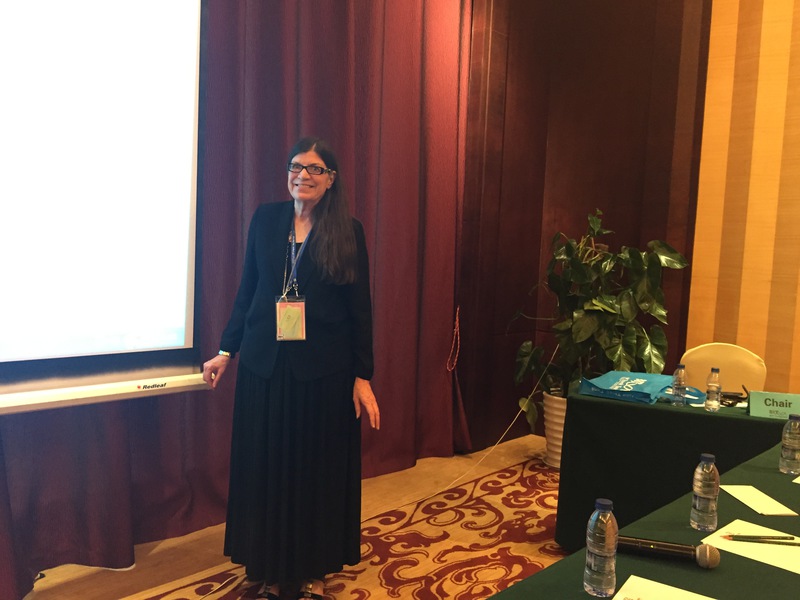Gaudet presents at neuropsychology conference in China

Hangzhou, CHINA – Dr. Laura Gaudet, counseling and psychology professor and department chair, represented Chadron State College at an international neuropsychology conference May 23 in China.
The trip was to a familiar area for Gaudet who lived with her family on Taiwan for three years when her father was stationed there during his military assignment. She was 6 when they returned to the U.S.
Neuro-Talk 2015 was a three-day conference for industry scientists, clinical investigators, academic physicians and pharmaceutical professionals from more than 30 countries in Hangzhou, China. The goal of the gathering was developing therapies for the most challenging neurological diseases through research studies and technology innovation.
Gaudet’s presentation, “How Students with Traumatic Brain Injury (TBI) and Autism are Supported in the Public School Setting in the United States,” was one of six in a session about “Neuroabilities and Traumatic Brain Injury and Nuerorehabilitation.” Other presenters in the session, chaired by Gaudet, were from China, Germany, Israel and Italy.
Students with TBI and autism in U.S. public schools are supported at a tremendous level, according to Gaudet’s research. She has continued to study these conditions and work with people suffering from them since she wrote her 1995 doctoral dissertation about brain injuries. It received the American Psychological Association (APA) dissertational research award. She also earned the Dean’s Citation Award for Excellence from the University of Northern Colorado in 1995.
“Care for students with a brain injury is well-coordinated between school officials, family members and professional health care providers. They go to great lengths to assess and discuss the student’s injury and then coordinate age-appropriate rehabilitation for the individual. It’s also important to consider how a TBI affects the family members of the injured person,” Gaudet said.
Several members of Gaudet’s family have been affected by TBI so her quest for more knowledge in this field is both personal and professional.
“One big problem is that most people with TBI don’t seek any professional medical help. Many people discount the serious nature of head injuries. Some just go to bed and never wake up,” she said.
Minor brain injuries don’t show up on Magnetic Resonance Imaging (MRI) results so the attending physician needs to be trained to assess other signs and symptoms, Gaudet said.
Topics of other presentations she attended at the conference included spinal cord injury, stem cell research, sensory and motor systems, Alzheimer’s and Parkinson’s, epilepsy, stroke and behavioral, cognitive and language neuroscience.
—Tena L. Cook, Marketing Coordinator
Category: Campus News

